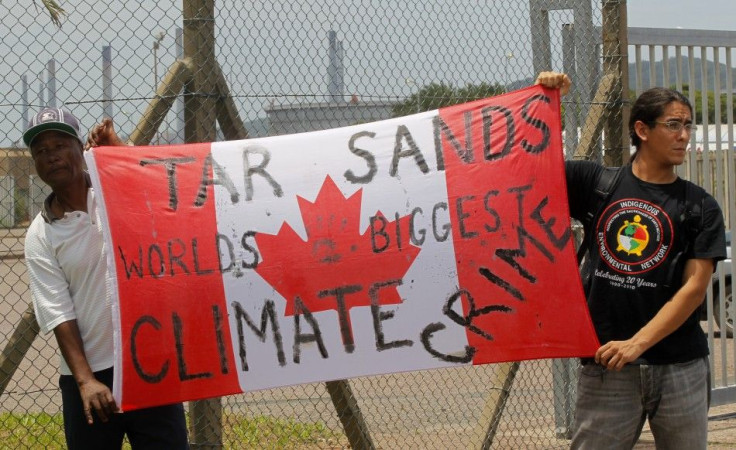Canada natives sue Shell over oil sands funding

A Canadian native group is suing Royal Dutch Shell Plc for what it said was a failure by the oil major to live up to environmental funding agreements tied to Shell's massive northern Alberta oil sands developments.
The Athabasca Chipewyan First Nation seeks C$1.5 million ($1.47 million) from Shell for allegedly blocking requests for money to be used for sustainable development and education initiatives in the community under agreements made in 2003 and 2006.
Shell's Athabasca Oil Sands project, Canada's third largest tar sands mining development, is in the aboriginal group's traditional territory. The Athabasca Chipewyan said the company is trying to change the terms of the funding, meant to ease the impact of tar sands development on the community. The charges have not been proven in court.
We came in good faith, always willing to talk with them, Athabasca Chipewyan Chief Allan Adam told Reuters on Wednesday. Shell played the role of tough guy and refused to deal with us on the terms we negotiated.
The suit comes amid growing international controversy over the impact of oil sands development on air, land, water and local communities. The Alberta oil sands deposits are the third-largest source of crude in the world, and Canada has made exports of the resource a top national priority.
The community of Fort Chipewyan, located downstream from the oil sands developments, has experienced unusual health problems, including elevated rates of rare cancers. Studies have been unable to definitively rule out a link with the oil projects and controversy remains.
Adam said the lawsuit is unrelated to the health concerns in the community of 963 people.
For its part, Shell said the dispute amounts to a fraction of the more than C$200 million the company has spent on numerous initiatives in the community over the past five years under its good neighbor program.
An example of a request that was denied was a bursary in which there wasn't a student to use it and the first nation wanted cash in lieu, said John Broadhurst, Shell's vice-president, development, heavy oil.
He said he was disappointed by the lawsuit and hoped the two sides can reach a settlement.
It's not that we're not committed to doing right by the community and following through on our commitments, Broadhurst said.
($1-$1.02 Canadian)
© Copyright Thomson Reuters 2024. All rights reserved.











